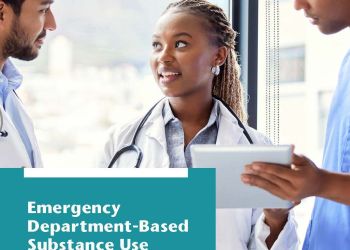The NACCHO Health and Disability Program is thrilled to introduce the 2022-2023 cohort of Health and Disability fellows. NACCHO’s Health and Disability Fellowship program is an invaluable opportunity for graduate and PhD students pursuing degrees in public health to receive hands-on experience in the health and disability field. The fellowship includes providing support to local health departments (LHDs) through Strengthening Disability Inclusion Efforts within Local Health Departments; expanding written and oral communication skills; and participating in networking opportunities with leaders in the health and disability field. This year’s fellows — Haleigh Leslie and Valerie Perkoski — come with impressive public health backgrounds.
NACCHO’s Program Analyst and Fellowship Supervisor, Uyen Tran, took some time to interview the fellows to get their perspective on why they decided to participate in the fellowship and what they hope to gain from the experience.

Haleigh Leslie
Q1: Tell us a little bit about yourselves.
Haleigh Leslie: I am a first year DrPH student at East Tennessee State University. Prior to starting school in the fall, I worked for the Oregon Health Authority Public Health Division in COVID-19 and emergency preparedness and response for a combined 6 years. I worked for two local health departments in Oregon in emergency preparedness and response. I have a Master’s in Public Health from Oregon State University, a Master’s in Business Administration from Bushnell University, and a Bachelor of Art in Exercise Science and Psychology from Hope College.

Valerie Perkoski
Valerie Perkoski: I currently reside in Binghamton, New York. For the past 15 years, I have worked diverse roles as a registered dietitian, nutrition services administrator, long-term care health surveyor, and health science instructor within nonprofit state/public services. Most of this time was spent working with individuals with intellectual and developmental disabilities within the group home, institutional, and family care setting. I am a PhD student in the Health Sciences program at Rocky Mountain University of Health Professions. Currently, I am working on my dissertation which focuses on physical activity among individuals with severe and profound intellectual disabilities who require the full-time use of a wheelchair. My research focuses on the perspectives of this physical activity from their family caregivers and clinicians. I am excited to be on track to defend my dissertation and graduate this year.
Q2: How did you become interested in the health and disability field?
HL: From the many emergencies I have responded to, I have seen firsthand the opportunities we have to build a more inclusive and whole community approach not only to responses but to public health programming. Many people with disabilities historically have not had equitable access to public health and health services before, during, and after emergencies. These experiences drive me in my work to build healthier, more inclusive, and resilient communities.
VP: My twin sister has a severe developmental disability requiring full-time care and support. As such, the topic of disability and health has been a part of my life since I was born. When I was 9 years old, my family and I encountered a medical provider who refused to provide services to my sister due to a misconception that her quality of life was not worth the effort due to her disability. As a child, this both shocked and appalled me. Because of this, I have spent most of my teenage years and adult life supporting health promotion for those with developmental disabilities within a volunteer and professional capacity. As a caregiver myself, I am personally invested in ways to support other caregivers in navigating the health care system while maintaining their own health and wellness.
Q3: What are your specific areas of interest in the health and disability field?
HL: I am interested in rural public health workforce development with an emphasis on disability inclusion training and inclusive emergency preparedness and response. I grew up in a small town and I have worked with many rural communities in public health emergency preparedness and response. I enjoy working with rural communities to address their unique public health needs.
VP: I am extremely interested in physical activity, nutritional interventions, and health promotion programs for adults with developmental disabilities once they age out of school-based settings. Given the frequent lack of programming and housing options, waitlists for services, and the aging caregiver population for those with developmental disabilities, I am also interested in research, policy, and health promotion opportunities for caregivers who may need additional support for those they care for and for themselves. Finally, as a sibling of an individual with a developmental disability, I enjoy connecting with other siblings who share these same life experiences. I hope to facilitate greater opportunities for connection to foster supportive relationships and resources.
Q4: What are you most excited to learn about when it comes to local health departments and public health in general?
HL: I am most excited to learn about the various ways local health departments throughout the U.S. are working to build disability inclusivity into their programs and workplace cultures and how we adapt these practices more broadly.
VP: I am most excited to learn about how LHD grant funding can be best utilized to support health promotion, community inclusion, safety, and emergency preparedness for those with disabilities. I am also eager to view research regarding best practices and experiences of LHD staff while attending a major conference. From a larger perspective, I hope to understand how LHD best practices may impact policies relating to individuals with disabilities in the U.S.
Q5: What do you hope to accomplish during your time as a NACCHO fellow?
HL: I hope to gain a better understanding of the variety of areas local health departments are working to improve disability inclusive public health programs and services and where they are having challenges. I also want to build my network and tools on disability inclusion so I can continue my work in this area.
VP: As a NACCHO fellow, I hope to provide support to LHDs. I hope to gain better insight on the barriers and facilitators to services and supports for people with disabilities. I also wish to connect with experts in the field to obtain ideas and strategies for implementing my own health promotion programs for individuals with developmental disabilities in the future.
Q6: What are your career goals upon completion of the fellowship?
HL: I am interested in returning to governmental public health with a focus on serving rural communities and building more disability inclusive public health programming.
VP: Upon completion of the NACCHO fellowship, I hope to continue my career in the field of developmental disability and health within the nonprofit sector. I plan to work within a leadership, training, or research capacity. After completion of my PhD, I am scheduled to enroll in my second master’s degree program in human performance and fitness. Within the next several years, I also plan on taking on an entrepreneurial role in the development of a nutrition, exercise, and health promotion program for adults with developmental disabilities and their caregivers.
Since joining the NACCHO Health and Disability program, Haleigh and Valerie have already contributed in several ways. They’ve participated in our Health and Disability workgroup and helped update our policy statement, so it aligns with the work health departments are doing in the field of disability inclusion. They’ll also be an integral part of the technical assistance program by providing resources and strategies for LHDs to advance their disability inclusion efforts.
To learn more about the fellowship, visit NACCHO’s Health and Disability program webpage or contact Uyen Tran at [email protected].
The NACCHO Health and Disability Fellowship is supported by the Centers for Disease Control and Prevention (CDC), Cooperative Agreement #5NU38OT000306-05-00 and NACCHO Health and Disability Program.


